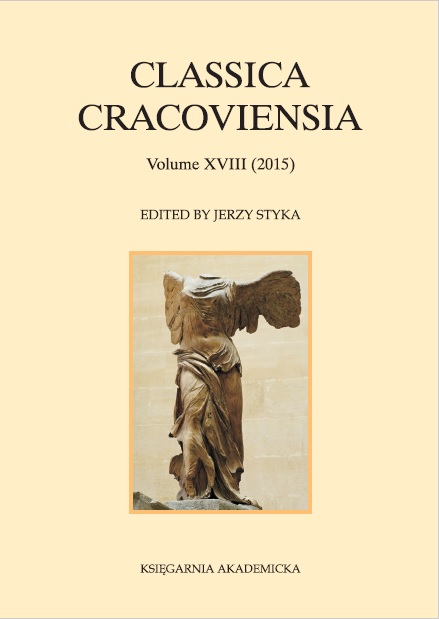Philicus’ “novel composition” for the Alexandrian grammarians: initial lines and iambe’s speech
Philicus’ “novel composition” for the Alexandrian grammarians: initial lines and iambe’s speech
Author(s): Jerzy DanielewiczSubject(s): Language and Literature Studies, Studies of Literature
Published by: KSIĘGARNIA AKADEMICKA Sp. z o.o.
Keywords: Greek literature; literary experiments in Hellenistic poetry; Philicus
Summary/Abstract: The Hymn to Demeter (SH 676-80) by Philicus of Corcyra can be viewed as a combination of new and traditional features. It contains a proclamation of novelty, but, at the same time, it is rooted in the hymnic tradition; the traceable characteristics of the conventional hymn, however, are considerably modified by Philicus and practically require redefinition. What seems particularly worth emphasising is the poet’s receptiveness to other than hymnic modes of expression as well as intertextual allusions ranging in time from the archaic period to the present day. Philicus’ poem (dw#ra) is “brought” to the grammatikoi, a specific group of recipients whose opinions must have counted so much that the poet decided to address to them his hymn on par with the gods. Although it is a truism to say that the ancient hymn composers took into account two communicative settings, one formally adopted (the author/performer – the god) and one resulting from the circumstances of their performance (the author/performer – the audience/readers), it is Philicus’ merit to state explicitly what the other poets used to leave implicit. The innovativeness of Philicus’ hymn is clearly visible also in Iambe’s speech, quoted in the last part of the preserved text (SH 680.56-62).
Journal: Classica Cracoviensia
- Issue Year: 2015
- Issue No: 18
- Page Range: 137-149
- Page Count: 13
- Language: English

